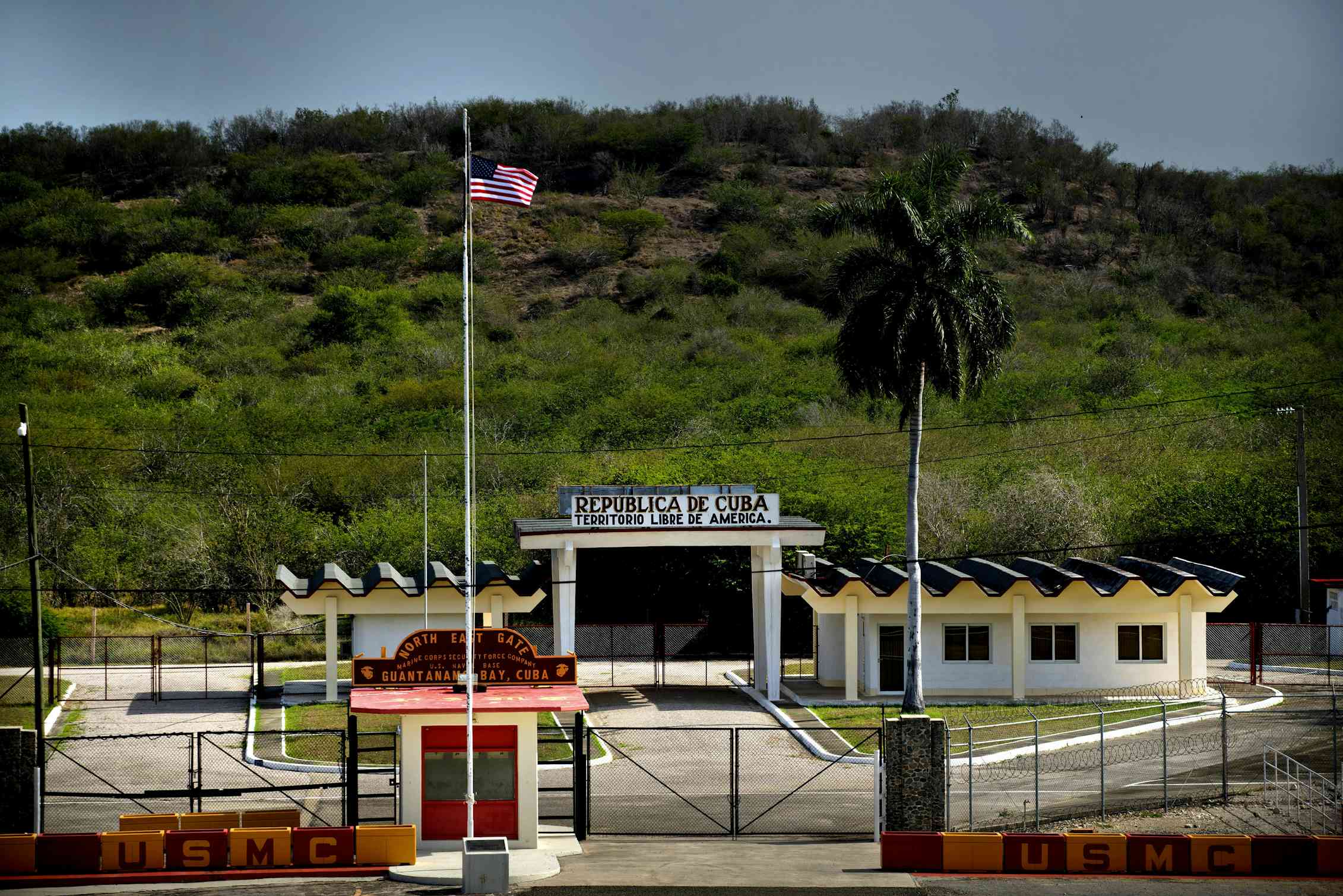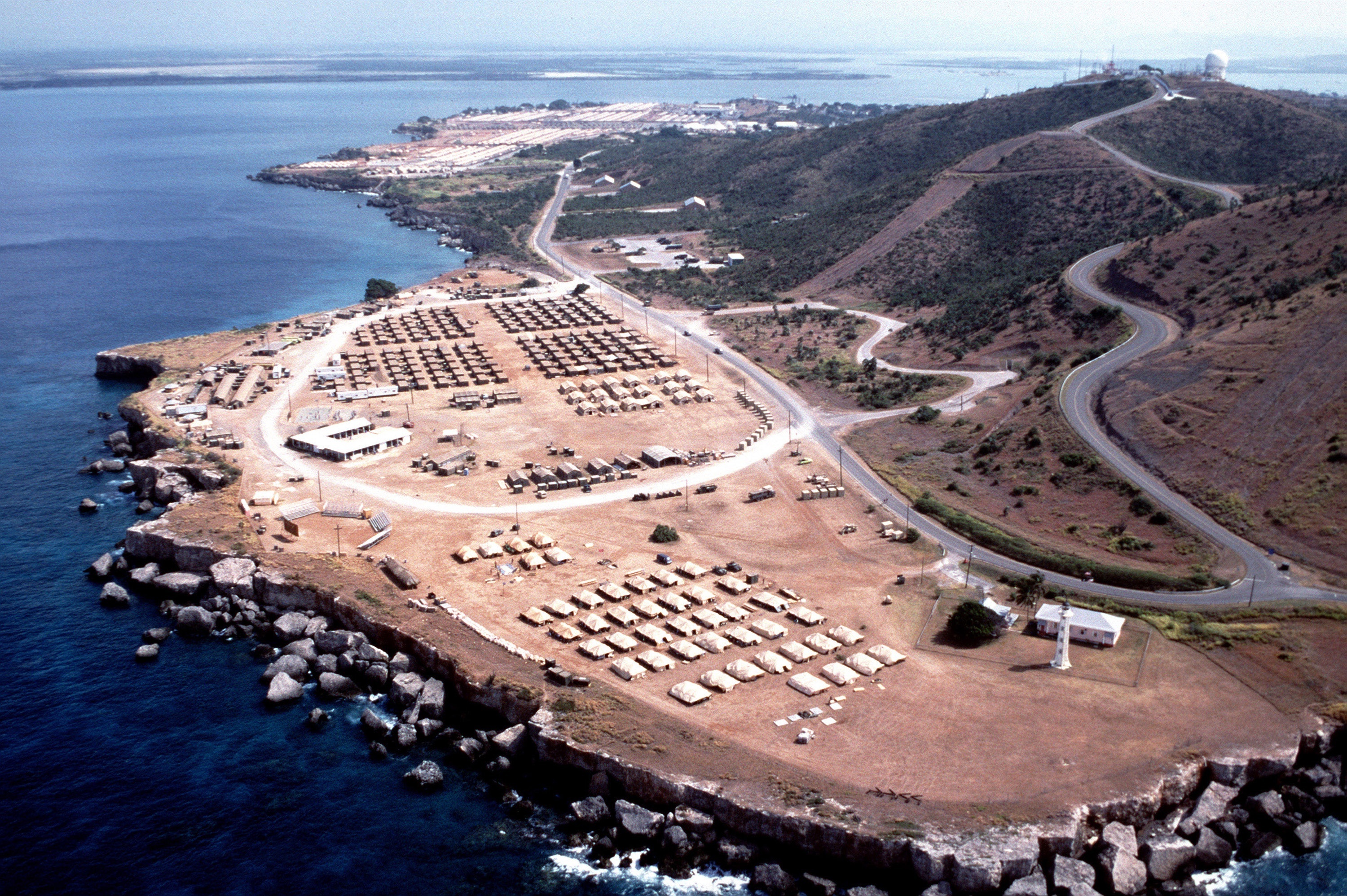Guantanamo Bay has long been a focal point of international debate and controversy. Since its establishment as a detention camp in 2002, it has been at the center of discussions regarding human rights, legal frameworks, and national security. This article will provide a detailed examination of Guantanamo Bay, exploring its historical background, legal challenges, and the broader implications it has on global politics.
As one of the most infamous detention facilities in the world, Guantanamo Bay represents a complex intersection of legal, ethical, and political issues. The facility has been both praised and criticized for its role in the War on Terror, making it a subject of immense interest for scholars, policymakers, and the general public alike.
This article aims to provide readers with a thorough understanding of Guantanamo Bay, delving into its origins, operations, controversies, and its impact on international relations. Whether you are a student, researcher, or simply someone curious about this topic, this article will serve as a comprehensive resource.
- Lisa Ortiz The Rising Star In The Entertainment Industry
- Sdmoviespoint 2 Your Ultimate Guide To Downloading Movies
Table of Contents
- History of Guantanamo Bay
- Establishment of Guantanamo Bay Detention Camp
- Legal Framework and Challenges
- Controversies Surrounding Guantanamo Bay
- Human Rights Concerns
- Global Impact and Diplomatic Relations
- Efforts to Close Guantanamo Bay
- Alternatives to Guantanamo Bay
- Key Statistics and Facts
- Conclusion
History of Guantanamo Bay
Guantanamo Bay, located on the southeastern coast of Cuba, has a long and storied history that predates its current role as a detention facility. Originally established as a naval base in 1903, the U.S. government leased the land from Cuba under a treaty that granted the U.S. indefinite control over the area. This strategic location has been used for various purposes throughout the 20th century, including as a refueling station during World War II.
Early Years and Purpose
In its early years, Guantanamo Bay served primarily as a naval station, playing a crucial role in U.S. military operations in the Caribbean. The base was expanded during the Cold War to monitor Soviet activities in the region. Despite its strategic importance, Guantanamo Bay remained largely unnoticed by the global public until the early 2000s.
Transition to Detention Facility
The transformation of Guantanamo Bay into a detention facility began in the aftermath of the September 11 attacks. The U.S. government sought a location where it could hold suspected terrorists without the constraints of domestic legal systems. Guantanamo Bay was chosen due to its isolation and legal ambiguity, making it an ideal site for this purpose.
- Paolo Bancheros Mom The Driving Force Behind An Nba Star
- Unveiling The Power Of Prmoviesreports Your Ultimate Guide To Movie Insights
Establishment of Guantanamo Bay Detention Camp
The Guantanamo Bay Detention Camp was officially opened in January 2002. It was designed to hold individuals captured during the War on Terror, including those suspected of ties to al-Qaeda and the Taliban. The facility was initially intended as a temporary holding center but has since evolved into a more permanent structure.
Initial Operations
- Construction of the detention camp began in late 2001, with the first detainees arriving in early 2002.
- Facilities were initially rudimentary, consisting of wire cages and temporary structures.
- Over time, the camp was expanded to include more permanent facilities, including Camp Delta and Camp X-Ray.
Legal Justification
The U.S. government justified the establishment of Guantanamo Bay by arguing that it was outside the jurisdiction of U.S. courts. This legal position allowed for the use of enhanced interrogation techniques and indefinite detention without trial, sparking widespread controversy.
Legal Framework and Challenges
The legal status of Guantanamo Bay detainees has been a subject of intense debate. The U.S. government initially classified detainees as "enemy combatants," a designation that exempted them from the protections afforded by the Geneva Conventions. This classification led to numerous legal challenges and international condemnation.
Key Legal Cases
- Rasul v. Bush (2004): The U.S. Supreme Court ruled that Guantanamo Bay detainees had the right to challenge their detention in federal court.
- Hamdan v. Rumsfeld (2006): The Court invalidated the military commissions used to try detainees, citing violations of the Geneva Conventions.
- Boumediene v. Bush (2008): The Court affirmed the constitutional right of habeas corpus for Guantanamo detainees, allowing them to contest their detention.
Impact on U.S. Legal System
The legal challenges surrounding Guantanamo Bay have had a lasting impact on the U.S. legal system. They have highlighted the tension between national security and civil liberties, prompting ongoing debates about the balance between these competing priorities.
Controversies Surrounding Guantanamo Bay
Guantanamo Bay has been embroiled in numerous controversies since its establishment. Issues related to human rights abuses, indefinite detention, and the use of torture have drawn significant criticism from human rights organizations and governments around the world.
Allegations of Torture
Reports of torture and inhumane treatment at Guantanamo Bay have been a major source of controversy. Techniques such as waterboarding, sleep deprivation, and sensory deprivation have been documented, leading to widespread condemnation by international bodies such as the United Nations.
Indefinite Detention
One of the most contentious aspects of Guantanamo Bay is the practice of indefinite detention without trial. Many detainees have been held for years without formal charges, raising questions about the legality and morality of such practices.
Human Rights Concerns
The human rights implications of Guantanamo Bay cannot be overstated. The facility has been criticized for violating fundamental human rights principles, including the right to a fair trial, freedom from torture, and humane treatment.
International Response
Human rights organizations such as Amnesty International and Human Rights Watch have repeatedly called for the closure of Guantanamo Bay. These organizations argue that the facility undermines the rule of law and sets a dangerous precedent for other countries.
U.S. Government's Stance
The U.S. government has defended its policies at Guantanamo Bay, arguing that they are necessary for national security. However, this stance has been challenged by both domestic and international critics who argue that it damages the U.S.'s reputation as a defender of human rights.
Global Impact and Diplomatic Relations
Guantanamo Bay has had a significant impact on U.S. diplomatic relations. The facility has strained relations with allies and adversaries alike, complicating efforts to promote democracy and human rights abroad.
Impact on U.S.-Cuba Relations
The presence of Guantanamo Bay has been a source of tension between the U.S. and Cuba. Despite the normalization of relations in 2014, the issue of the base remains unresolved, serving as a reminder of historical grievances.
Broader Implications
Guantanamo Bay has also influenced global perceptions of the U.S. as a leader in human rights. The facility's existence challenges the U.S.'s commitment to these principles, making it a focal point for criticism and scrutiny.
Efforts to Close Guantanamo Bay
Efforts to close Guantanamo Bay have been ongoing for years, with multiple administrations pledging to shut down the facility. Despite these promises, the closure process has faced significant obstacles, including political opposition and logistical challenges.
Challenges to Closure
- Political opposition from lawmakers who argue that closing the facility poses a security risk.
- Logistical challenges related to the transfer and resettlement of detainees.
- Legal complexities surrounding the prosecution of detainees.
Potential Pathways
Possible solutions to closing Guantanamo Bay include transferring detainees to third countries, prosecuting them in U.S. courts, or releasing those cleared for release. Each option presents its own set of challenges, requiring careful consideration and coordination.
Alternatives to Guantanamo Bay
As the debate over Guantanamo Bay continues, alternative solutions have been proposed. These include the establishment of domestic detention facilities, increased reliance on international legal frameworks, and greater emphasis on diplomatic solutions.
Domestic Facilities
Some have suggested transferring detainees to domestic facilities, where they could be held under the jurisdiction of U.S. courts. This approach would address many of the legal and human rights concerns associated with Guantanamo Bay.
International Cooperation
Strengthening international legal frameworks and promoting cooperation between countries could provide a more effective means of addressing the challenges posed by Guantanamo Bay. This would require a commitment to multilateralism and respect for international law.
Key Statistics and Facts
Below are some key statistics and facts about Guantanamo Bay:
- Since its opening in 2002, over 780 individuals have been detained at Guantanamo Bay.
- As of 2023, fewer than 40 detainees remain at the facility.
- Approximately 200 detainees have been cleared for release but remain at Guantanamo due to political and logistical barriers.
- The annual operating cost of Guantanamo Bay is estimated to be over $500 million.
Conclusion
Guantanamo Bay remains a contentious and complex issue, representing a convergence of legal, ethical, and political challenges. This article has explored its history, legal implications, controversies, and global impact, providing readers with a comprehensive understanding of the facility and its significance.
As efforts to close Guantanamo Bay continue, it is crucial to address the underlying issues that have contributed to its existence. By promoting respect for human rights, upholding the rule of law, and fostering international cooperation, it may be possible to find a lasting solution to this enduring problem.
We invite readers to engage with this topic further by sharing their thoughts in the comments section, exploring related articles, and staying informed about developments in this area. Together, we can contribute to a more just and equitable world.
- Lisa Ortiz The Rising Star In The Entertainment Industry
- Prmoviesreport Your Ultimate Guide To Streaming Movies Online


